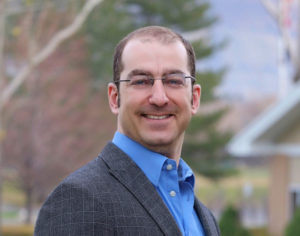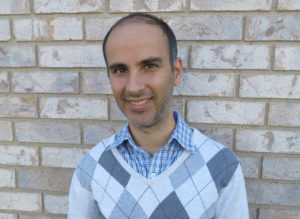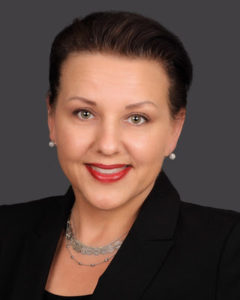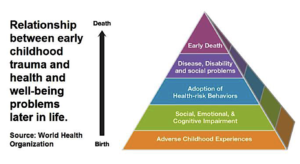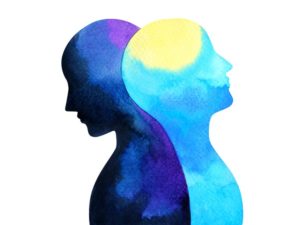In light of recent events and protests fueled by the senseless and tragic deaths of George Floyd, Ahmaud Arbery, Breonna Taylor and countless black people and other people of color, the Trauma Informed Care Network joins the voices of those speaking out about these issues. These recent events have served to highlight the ongoing issues of racial injustice, inequity, and intergenerational abuse and trauma that have occurred in our country and worldwide. TICN hopes to be able to contribute to the ongoing dialogue, solutions, and healing. As TICN was originally formed by many who had an interest in the impact of emotional trauma and fostering resiliency, this is an issue that we feel strongly about. Part of TICN’s mission has been to inform, educate, network, and enable access to trauma informed solutions and interventions and we hope to lend our resources to contribute to this movement.
Much of my experience as a trauma-informed therapist has been to work with individuals and families who have experienced a variety of traumas. General principles apply in this work on a smaller scale which seem to be relevant to this currently highlighted collective trauma of racial injustice. With individuals, we first need to create a safe space and listen when impacted individuals are ready and able to voice their trauma. Without judgement, we need to really hear thoughts, emotions, and experiences surrounding traumas, to work to understand peoples’ experiences, and to compassionately validate how these events have landed on and impacted individuals over time. We need to understand that each person’s story is unique and we cannot judge their experience nor dictate how they should feel. As we create this safe space we can hope to listen, support, give space for processing and emotional healing, as well as assist people to action in working out practical solutions in their lives, families, and communities to create present and future safety and resilience.
Similarly, in order for healing to occur within black communities and within our culture at large, we (especially white people and other privileged individuals) need to create a safe space and listen as black people voice their traumas that have happened on a personal, cultural, and historical level. We must not become defensive in this process or use the listening space to voice our own shame if we have benefited from systemic racism and privilege in the past and/or currently do. The goal is to listen and be a witness to the voicing of how systemic racism has impacted black people and black communities. One way to heal trauma is to have autonomy and choice – to be able to act in defense of one’s safety and to promote sovereignty over one’s own life. In addition to listening to black people and being witness to their current and historical pain and suffering, we can help to empower and stand in support of their leadership, using any privileges we may have to be allies in actions taken to create future safety, healing, and resilience for people of color and society at large.
As I think about our collective experience whether we are white or a person of color, we have all been impacted by these present and historical issues and we can take this opportunity to own and recognize our experience, blind spots, protective reactions, responsibility, etc. As we provide a safe listening space, compassionate understanding and validation for our individual and collective experiences, hopefully we can promote healing and action towards practical solutions to move our society forward to a safer and healthier place. We need to be especially attentive to those who have been directly or indirectly impacted by individual and systemic racism and have experienced the effects of present and/or intergenerational trauma. Those impacted especially need this safety and listening space where we can seek to hear and understand their traumas to facilitate healing, growth, and action towards a more equitable society.
In addition to individual and family interventions, some of our work at TICN has also been focused on promoting trauma informed organizations and cultures, also very relevant to this discussion. SAMHSA’s (Substance Abuse and Mental Health Association) six principles of trauma informed care as shown below are appropriately relevant to this discussion.
If we can approach these current issues of racial injustice and activism with the goal of creating Safety for all of those involved, we will be more able to create healing spaces and room for dialogue and solutions. If we can promote Trustworthiness and Transparency in individuals, agencies, institutions, we can more effectively achieve understanding, take responsibility, and facilitate needed change. We need to involve Peer Support by encouraging and providing opportunities and platforms for those who might be struggling or working for solutions, to be able to show up for each other and have avenues to reach out in times of need for collective strength. We need to see that we are all in this together, that this is a collective problem that requires an attitude of Collaboration and Mutuality versus divisiveness to foster sustainable solutions. We need to Empower Voice and Choice – we need to hear from and encourage those whose voices may have been dismissed, ignored, or minimized to be able to speak up and share their experiences, unmet needs, and potential solutions. This is an opportunity to fully hear the pain and trauma experienced by those who have been victims of individual and systemic racism and racial injustice and allow space for getting these needs met and to explore ways of restoring justice. And finally, implicit in all of this is an increased call for us to become more educated and aware of the Cultural, Historical, and Gender Issues where many in our communities, especially minorities and people of color, have been harmed. TICN seeks to be allies in the movement to promote these principles to work towards healing and restorative justice and welcomes collective involvement, collaboration, and dialogue surrounding these important issues.
Anti-Racism Educational Resources
Books to Read:
Podcasts to subscribe to:
Articles to read:



